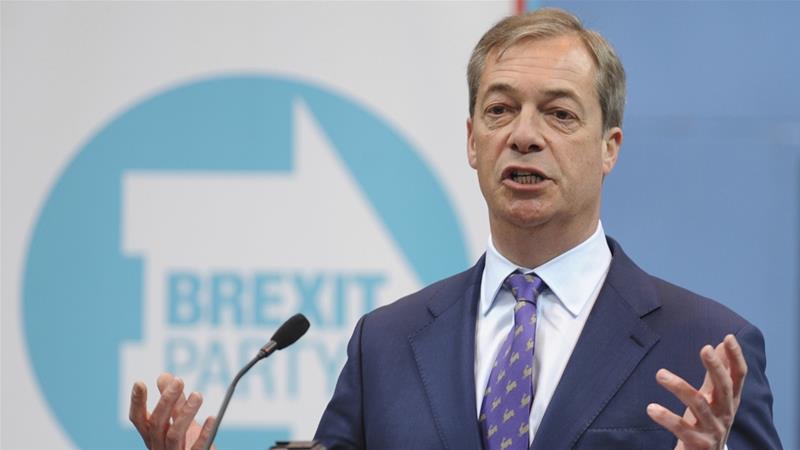Brexit Party Nigel Farage Larger than Conservatives and Labour together. Prime Minister Theresa May’s British Conservative party would only become the fourth party in the European elections at the end of May.
The big winner would be the new Brexit party by eurosceptic Nigel Farage, according to a new poll for the Sunday newspaper The Observer, which confirms a trend.
At 34 percent, the newly established Brexit Party would be immediately larger than the Conservative party and Labour together. Labour would become the second largest party with 21 percent, and the Conservatives would fall to just 11 percent.
They should narrowly lead the pro-European Liberal Democrats, who end up at 12 percent, in the poll.
The British also go to the polls on Thursday 23 May to elect 73 MEPs. Last week it was definitively decided that the country will participate in the European elections because the Brexit can no longer be arranged in time.
British politics is to the core divided on the conditions for leaving the European Union. Prime Minister May’s plan did not get a majority in parliament. The parliament itself did not come up with alternatives that received sufficient support.
The political chaos that has been going on for months also affects the United Kingdom itself. Scotland and Wales openly turn against London. In Wales, an independence march was even held yesterday.
Farage’s previous party, UKIP, which then also campaigned for the Brexit, achieved the most significant number of the 73 British seats in 2014. With 26.6 percent, the party received 24 seats, four more than Labour (24.4 percent) and five more than the Conservatives (23.1 percent).
UKIP now barely reaches 4 percent in the poll, after Farage and several other members stepped out at the end of last year.
The Conservatives and Labour also receive a blow to the question of who the voters would vote for if there were British parliamentary elections at the moment. The Brexit party would immediately become the third party with 21 percent.
Labour would be the largest party, but only with 28 percent, two years ago it was 40 percent. The Conservatives fall even more sharply and would fall from more than 42 to 22 percent. The LibDems would rise from 7.4 percent to 11 percent.


